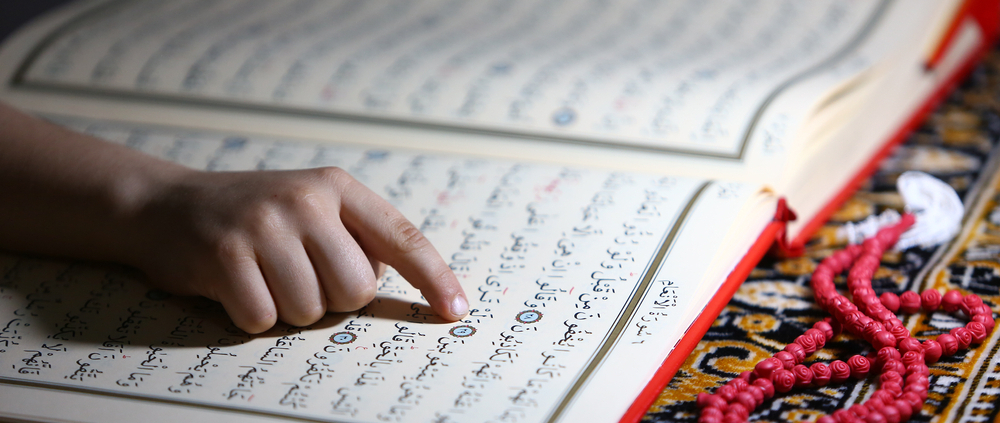Why Wasn’t the Quran Compiled into a Single Book during the Lifetime of the Messenger of Allah (Blessings and Peace Be upon Him)?
Answered by Shaykh Anas al-Mousa.
Question
Why wasn’t the Quran compiled into a single book during the lifetime of the Messenger of Allah (blessings and peace be upon him)?
Answer
Compilation of the Quran in the Era of the Prophet (Allah Bless Him and Give Him Peace)
The entire Quran was indeed written during the time of the Messenger of Allah (blessings and peace be upon him). The blessed era of Prophethood did not end without the Quran being compiled, gathered within the hearts, and on parchment sheets.
However, it was not compiled into a single book or collective scrolls. Instead, it was dispersed among various individuals and written on different materials. It was decreed by Allah (Most High) that the Messenger of Allah (blessings and peace be upon him) would pass away before the Quran could be compiled into a single Mushaf (the more appropriate term for a written copy of the Quran); history attests to this.
It is known that the Quran was first compiled into a single book during the caliphate of Abu Bakr al-Siddiq (Allah be pleased with him). [Tayyar, Al-Muharrir fi ‘Ulum al-Quran :151; al-Bugha & al-Din Mustu, Al-Wadhih fi ‘Ulum al-Quran :81]
Why Was the Quran Not Compiled into a Single Book during the Time of the Messenger of Allah (Peace and Blessings Be upon Him)?
One of the reasons for not compiling the Quran into a single book during the time of the Messenger of Allah (blessings and peace be upon him) was that there was no immediate need to write it in one manuscript. The circumstances did not necessitate the formal compilation of the entire Quranic text. The events that unfolded during the caliphates of Abu Bakr (Allah be pleased with him) and ‘Uthman (Allah be pleased with him) were the catalysts for the Quranic compilation into written records.
During the time of the Messenger of Allah (Allah bless him and give him peace), the Muslim community was in a relatively good state, and many Quran reciters (Qurra’) had memorized the Quran. The Islamic civilization had yet to reach its zenith, and the potential for social and political disturbances was low. As such, the primary means of preserving the Quran was through oral transmission, and the emphasis was placed on memorization.
Moreover, the tools for writing and preserving texts, like materials and bookmaking methods, were less advanced and readily available than they would later become. It would have been required and initiated if the Muslim community had needed a written compilation during the time of the Messenger of Allah (blessings and peace be upon him).
The Quran was not revealed all at once but descended gradually over approximately twenty years or more. The Messenger of Allah (blessings and peace be upon him) received revelations intermittently, according to Allah’s (Most High) Divine Wisdom and Decree. He would be granted specific verses as required.
Compiling the Quran into a single manuscript was suitable for a situation where its revelation had concluded. However, when it came to the revelation itself, it was not a continuous process. For instance, a portion of a chapter might be revealed, and the remainder would later be appended. Sometimes, certain revelations were abrogated and not to be recited any longer.
If the Quran had been compiled into a single manuscript at the time, it would have made this process of addition, abrogation, and adaptation much more challenging, unlike its preservation in scattered written form and within the hearts of the believers.
Imam Khattabi stated: “The Quran was not compiled into a single manuscript during the lifetime of the Messenger of Allah (blessings and peace be upon him) because of the expectation of possible abrogation of some of its rulings or recitations. However, when the Messenger of Allah (blessings and peace be upon him) passed away, and revelation ended, Allah (Most High), fulfilling His true promise to safeguard the Quran for this Umma, inspired the Rightly Guided Caliphs to take action.
The initiation of this task began with Abu Bakr (Allah be pleased with him) under the counsel of Umar (Allah be pleased with him).” [Suyuti, Al-Itqan, 1.202]
The Final Revelation of the Quran
Ibn ‘Abbas (Allah be pleased with him) reported that the last verse revealed from the Quran was:
“Be mindful of the Day when you will ˹all˺ be returned to Allah, then every soul will be paid in full for what it has done, and none will be wronged.” [Quran, 2:281]
Imam Tabari commented that some say the Messenger of Allah (blessings and peace be upon him) lived for nine more nights after the revelation of this verse. [Tabari, Tafsir Jami‘ al-Bayan, 6.41]
This suggests the possibility of new revelations even shortly before the Messenger of Allah’s passing, which could include abrogating verses.
The Compilation of the Quran after the Passing of the Messenger (Allah Bless Him and Give Him Peace)
In conclusion, when the process of revelation concluded, and the Messenger of Allah (blessings and peace be upon him) passed away, there was no longer a need for abrogation – the arrangement of the Quranic text became finalized.
Under the guidance of Allah, the righteous caliphs took on the duty of compiling the Quran into written form. This was done to preserve the Quran and protect the original source of Islamic law, in line with Allah’s promise:
“It is certainly We Who have revealed the Reminder, and it is certainly We Who will preserve it.” [Quran, 15:9] [Suyuti, Al-Itqan, 1.202; Zurqani, Manahil al-‘Irfan, 1.248; Tayyar, Al-Muharrir fi ‘Ulum al-Quran :151]
May Allah Most High bless our leader, the Messenger Muhammad, and his family and companions.
